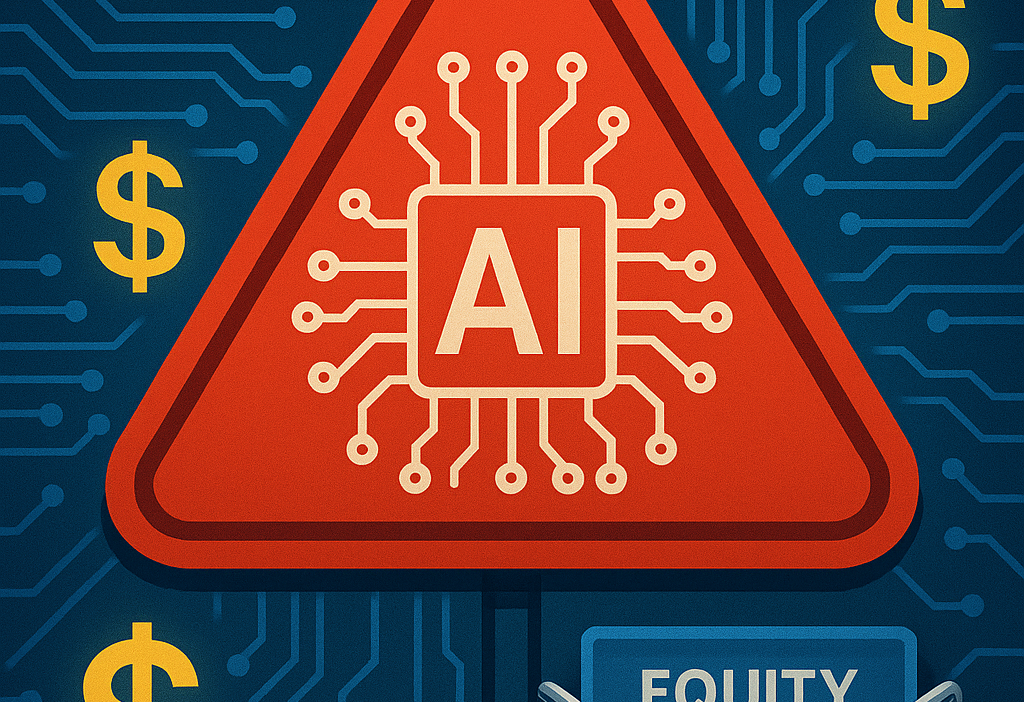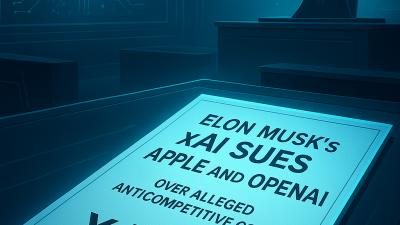OpenAI Cautions Investors on SPVs and ‘Unauthorized’ Funding Deals
OpenAI, the trailblazing company behind revolutionary technologies like ChatGPT, has recently issued a stark warning to potential investors. This advisory focuses on the dangers of special purpose vehicles (SPVs) and other unauthorized funding deals that promise access to the company’s equity. As the AI sector heats up with unprecedented investor interest, understanding this caution is crucial for anyone looking to dip their toes into this high-stakes arena.
The warning comes at a time when AI companies are attracting massive capital inflows, driven by fear of missing out (FOMO) and the promise of transformative returns. However, not all paths to investment are legitimate, and OpenAI is taking a firm stand to protect both its interests and those of genuine stakeholders.
What Are SPVs and Why Are They Popular in AI Investments?
Special purpose vehicles, or SPVs, are essentially legal entities created for a specific investment purpose. They allow groups of investors to pool their resources and collectively buy into private companies that might otherwise be out of reach for individual participants. In the context of AI startups like OpenAI, SPVs have gained traction because direct investment opportunities are often limited to venture capitalists, institutional funds, or high-net-worth individuals with established connections.
The Appeal of SPVs
SPVs democratize access to hot tech investments by lowering the entry barrier. For instance, instead of needing millions to invest directly, smaller investors can contribute to an SPV that aggregates funds to secure a stake. This model has exploded in popularity amid the AI boom, where companies are valued in the hundreds of billions. The structure also offers tax advantages and liability protection, making it an attractive tool for savvy investors.
However, the flip side is the risk of unauthorized SPVs. These are setups that claim to offer indirect exposure to a company’s shares without the company’s approval. Such vehicles might promise “synthetic” ownership through derivatives or other financial instruments, but they often lack legitimacy.
Risks Associated with Unauthorized SPVs
Unauthorized SPVs can lead to significant financial losses. Investors might pour money into these vehicles only to find that their stakes are not recognized by the target company. This means no dividends, no voting rights, and potentially no recourse in case of disputes. Moreover, these schemes can be breeding grounds for fraud, where operators exaggerate affiliations or fabricate access to lure in capital.
OpenAI’s Official Stance and Warning Details
OpenAI’s advisory, released through an official channel, emphasizes that any transfer of equity—direct or indirect—requires the company’s explicit written consent. Without this, transactions are deemed void, rendering investments worthless. The company explicitly calls out SPVs as a common vehicle for these unauthorized deals, urging investors to exercise extreme caution.
Key Excerpts from the Advisory
In the statement, OpenAI highlights the proliferation of firms purporting to have insider access. They advise: Be wary if approached by entities offering SPV interests or other indirect exposures. Such offers often violate transfer restrictions and could expose both buyers and sellers to legal repercussions. The company stresses that it will not acknowledge unauthorized stakeholders, effectively nullifying any claims to ownership.
This move isn’t isolated; it reflects a broader effort to maintain control over share distribution and prevent dilution of value. OpenAI’s leadership has reiterated that legitimate investment opportunities are handled through vetted channels, not third-party schemes.
Timeline and Context of the Warning
The caution arrives amid reports of surging AI valuations and a secondary market frenzy. With OpenAI’s worth estimated in the stratosphere, opportunistic players have emerged, capitalizing on investor enthusiasm. This advisory serves as a proactive measure to curb potential scandals and safeguard the ecosystem.
Reasons Behind OpenAI’s Caution
Several factors underpin OpenAI’s decision to issue this warning. Primarily, it’s about protecting investors from scams in an opaque market. The AI hype has created a bubble-like environment where FOMO drives rash decisions, leading to investments in unverified opportunities.
Controlling Equity and Governance
From OpenAI’s perspective, unauthorized deals undermine governance. By restricting transfers, the company ensures that only approved investors align with its mission and values. This control is vital for a firm navigating complex ethical and regulatory landscapes in AI development.
Broader Industry Trends
Similar cautions have echoed from peers in the AI space. For example, other leading firms have tightened share transfer policies amid rising valuations. This collective stance points to a maturing industry wary of speculative excesses that could invite regulatory scrutiny.
Legal and Financial Ramifications
Unauthorized transactions aren’t just ineffective; they can trigger lawsuits. Sellers risk breaching contracts, while buyers might face fraud claims. OpenAI’s warning underscores the potential for voided stakes and lost capital, aiming to deter participation in such schemes.
Implications for Investors and the AI Market
For investors, this advisory is a wake-up call to due diligence. Always verify offers through official sources and consult legal experts before committing funds. The rise of unauthorized SPVs highlights the need for transparency in private markets, where information asymmetry can be exploited.
How Investors Can Protect Themselves
- Seek Official Confirmation: Contact the company directly for validation of any investment opportunity.
- Avoid Third-Party Promises: Steer clear of unsolicited offers claiming exclusive access.
- Understand Legal Frameworks: Familiarize yourself with securities laws governing private investments.
- Diversify Wisely: Explore regulated AI funds or public tech stocks as safer alternatives.
On a macro level, this could cool the overheated secondary market for AI equities. It might lead to more structured investment vehicles, fostering a healthier ecosystem. However, it also underscores the exclusivity of top-tier AI investments, potentially limiting broader participation.
Future Outlook
As AI continues to evolve, expect more such advisories. Companies like OpenAI are likely to enhance investor education and collaborate with regulators to combat fraud. This could pave the way for innovative, compliant funding models that balance accessibility with security.
In conclusion, OpenAI’s caution on SPVs and unauthorized funding deals is a timely reminder of the perils in the AI investment rush. By heeding this advice, investors can navigate the landscape more safely, ensuring their capital supports genuine innovation rather than illusory schemes.



